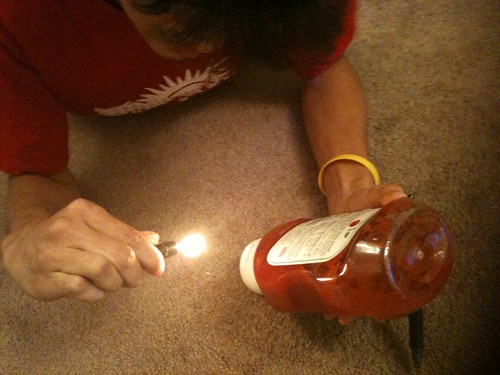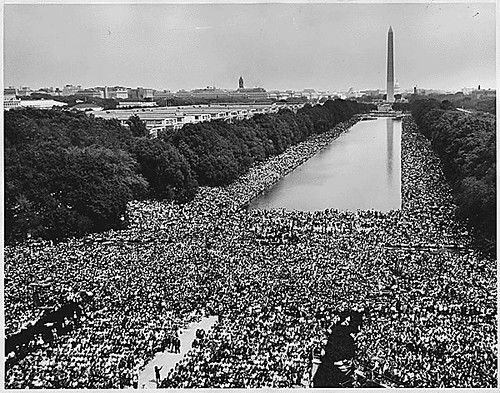Tingle, Greg. "Journalistic Plagiarism Is out of Control." Greatreporter.com. 17 Feb. 2005. Web. 15 Oct. 2010. .
Plagiarism is a problem for many people. There is not only plagiarism in school reports but also in the news. This article describes how "journalistic plagiarism is out of control". Big time journalists, such as Jayson Blaire of the New York Times, even plagiarize and falsify documents. Some reporters will even plagiarize reports from little known sources such as students. A TAFE student in Sydney wrote "article on a historical society issue involving the local council in Sydney's Hill's district." He then pitched his article to a local newspaper, who replied: "'Sorry, not very interested, but you can send over your ideas if you like'". Four weeks later, an edited version of his article was printed in the newspaper. How to Watch TV News describes how VNRs (video news releases) are plagiarized by the general media such as CBS News. CBS News used a VNR by the Institute for Injury Reduction to show defections in safety belts and rollovers without giving credit to the Institute. If people in the news can't come up with something and have to revert to stealing someone else's work without giving credit, how trustworthy can they be in reporting news in the first place?
Jury, By Louise. "An Overpaid Airhead? Not Me, Katie Derham Tells the 'old-timers' - Media, News - The Independent." The Independent | News | UK and Worldwide News | Newspaper. Web. 18 Oct. 2010. .
Many people claim that news anchors are overpaid for "simply to read[ing] an autocue." Both new and old employees in the news agree. Most people say that being an anchor requires very little intelligence. John Humphreys even went to the extent of saying that he thinks his "four-year-old will be ready in a couple of months." However, Katie Durham claims that an anchor must be able to "think on [their] feet." She also claims that if they were not able to think on their feet "the product would be crap and we would be taken off-air." Many newscasters and anchors today are not getting out of the office and into the field to do actual reporting. Jon Snow explains that we are seeing the rise of a generation of anchors who have never been in the field" and that "there are people now who are saying 'Sorry, I don't do that', and 'I don't know how to do that' - and as a result never left the studio." How to Watch TV News explains how anchors are payed ridiculously large amounts of money to capture viewers with their good looks and nice suits.
Lee, By Douglas. "Firstamendmentcenter.org: Press - Topic." Firstamendmentcenter.org: Welcome to the First Amendment Center Online. Web. 18 Oct. 2010. .
There is debate whether cameras should be allowed in courtrooms. Some say that when cameras are let into courtrooms, they hamper the ability of the judge and jury to pass a lawful decision. This has many people to claim that they have been denied a fair trial. However, cameras are now being allowed in most places, so long as the policymakers of the federal and state courts allow it. How to Watch TV News explains how many defendants are claiming they were denied a fair trial by the presence of cameras. One person explained that when you add a camera to a courtroom, you turn the "courtroom into a circus." The debate has changed slightly since cameras have modernized. One argument about whether to have cameras in the courtroom was that they distracted everyone. Now, cameras have become much quieter and pose less of a physical distraction.
Dreisbach, By Shaun. "TV News Too Violent for Children? - Parenting.com." Parenting.com - The Home of Parenting and Babytalk. Web. 18 Oct. 2010. .
All parents (or at least the good ones) care whether their child watches violent TV at a young age, but what if TV news were just as terrifying and corrupting? In TV news, children are exposed to the base of human life (murder, muggings, and crimes) in it's truest form. According to this article "a recent study found that children actually find the news far more terrifying than anything they'd see on a blood-and-guts drama." "The researchers showed nearly 600 kids ages 8 to 12 disturbing TV content -- things like war images, people shooting at each other, house fires, and plane crashes -- then told them what they were watching was either a fictional "Hollywood show" or an actual news program." They found that "children who thought they were seeing real events had significantly higher fright responses -- they showed a greater emotional reaction -- than those who believed they were watching a fictional show," said study coauthor Brad Bushman, Ph.D. How to Watch TV News expresses a kind of worry about children who watch TV news because they are exposed to such acts.
"Fake TV News: News Release | Center for Media and Democracy." Center for Media and Democracy | Publishers of PR Watch. Web. 17 Oct. 2010. .
There are many TV News stations that play video news releases (VNRs) and do not mention their source or that they are VNRs to the public that they show them to. This brings up problems with plagiarism and the possibility that the VNR is fake. Most TV news stations find it irresistible to take an already made news report, say it is their own (or fail to mention that it isn't theirs), and show it to the general public. Most people take these reports as facts because they are not told that the report is a VNR. How to Watch TV News talks quite a bit about VNRs and their ability to be easily stolen by TV news stations. There are a few VNRs that are fake news, which leads to concern in showing these reports to the public when they aren't researched by the TV news station.
"Is Linking an Antidote to Plagiarism in Journalism?" Publish2 Blog. Web. 18 Oct. 2010. .
Even in small states, plagiarism is present. Tammi Marcoullier writes of how she found out that one of her blog posts had been plagiarized by a competing news source. What caught her attention was that the person who she interviewed had said a specific quote which was also included in the other person's report. When Marcoullier called the person she suspected of plagiarizing her blog post, he apologized in a "backhanded way, as if he really didn’t believe he’d done anything wrong." Marcoullier suggests a simple way to avoid plagiarism on the Internet by simply linking sources. Journalistic plagiarism is mostly represented in How to Watch TV News in the use of video news reports (VNRs). Plagiarism is the "worst crime" that can be committed by news sources simply because they do not give credit to the people who actually worked on the reports and have all the credit for themselves.
""What Do We Need Professional Reporters For?"" Small Dead Animals. Web. 18 Oct. 2010. .
This article deals with the growing number of citizen and free-lance journalists and photojournalists. People in the news business fear that many more people will go to the local news by citizens instead of the highly paid anchors for factual, reliable news. Who wouldn't go to someone they know personally for news (and I don't mean gossip) instead of some good-looking anchor behind a desk reading an autocue? The citizen journalist may have more incentive to get his or her facts straight. If a citizen journalist reported on a major event only to be found out that his/her facts were completely wrong, the journalist would loose much respect, thus less people would trust that person or listen to him/her. How to Watch TV News shows examples of how citizen journalism is being used more often. For example, hundreds of people filmed the events of 9/11 in the streets and around the city. These videos were used in reports about the event and give a different view than one of the mainstream widely known TV news sources.
"Cameras In Courtrooms: Information from Answers.com." Answers.com: Wiki Q&A Combined with Free Online Dictionary, Thesaurus, and Encyclopedias. Web. 18 Oct. 2010. .
Whether cameras should be allowed into courtrooms is still debated in various degrees. Now, all US states "allow some type of camera coverage." Even though some people argue that having cameras in the courtroom violates due process rights, experimental studies have, in some courtrooms, suggested that cameras do not interfere with due process. First, the Supreme Court "enacted Rule 53 of the Federal Rules of Criminal Procedure, prohibiting all photography or broadcasting of federal criminal cases". The Supreme later reviewed the case of Chandler v. Florida (1981) and unanimously decided that "states should be free to develop their own procedures for broadcasting trials, and that such television coverage was not an inherent violation of due process". Even with Rule 53 not being upheld any longer, the Supreme Court "does not allow photographic or broadcast coverage of proceedings." How to Watch TV News explains the debate about whether or not cameras should be allowed in courtrooms, which they leave up to the policymakers of the federal and state courts.
"Children And The News." American Academy of Child & Adolescent Psychiatry. Web. 18 Oct. 2010. .
Children are exposed to news very often and without the reports being sugar-coated for the children, negative effects can occur to the children. Children watching news are prone to "imitate what they see and hear in the news," which is "a kind of contagion effect described as 'copy cat' events". Children who are constantly exposed to violent news are more likely to be fearful and suffer from other such negative effects. With the increase in coverage of crimes ("240%" according to this article) children are much more likely to be exposed to such acts. This article also has suggestions on how to reduce the negative effects of violent news such as "monitoring the amount of time [the] child watches news shows" and "provid[ing] reassurance regarding his/her own safety in simple words emphasizing that you are going to be there to keep him/her safe". Worry is expressed about this subject in How to Watch TV News because TV news stations do not soften violent reports for children.
"Why You Need To Be Careful About Watching The News." Citizen Warrior. Web. 18 Oct. 2010. .
Many TV news stations leave a negative or depressed feeling on the viewer because most feature acts that are out of the control of the victims. People who watch these kind of reports feel a sense of helplessness and hopelessness because "the problems shown on the screen are too big or too far away or too permanent to do anything about". This coupled with our brains having a "negative bias" leads many people into a kind of depression (mild or severe). TV news can more easily impact how a person feels than news in print because "you have no choice over what you take in, and visual images remain in the mind more easily". How to Watch TV News explains how people are attracted to events such as murders and muggings because they think about how they have survived another day or "I'm glad that wasn't me".






